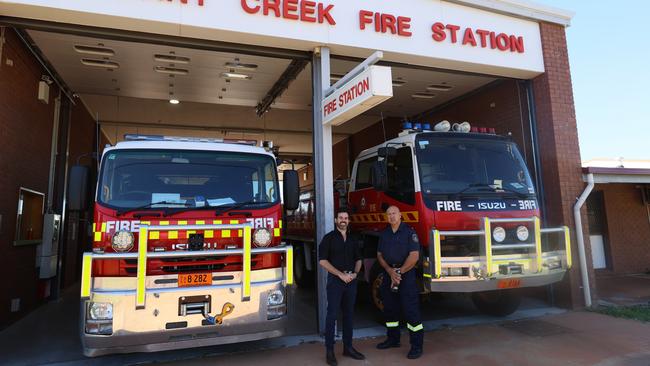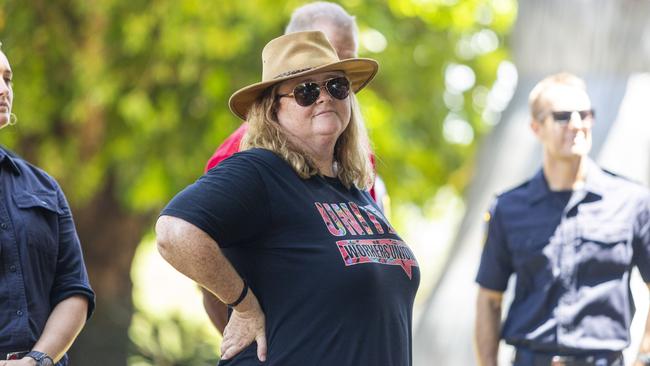Firefighters to get more power in compo claims as new cancers linked to ‘hazardous substances’
Making the announcement on International Firefighters’ Day, the Territory government will move to recognise new cancers as linked to dangerous toxic materials exposure. Find out more.
News
Don't miss out on the headlines from News. Followed categories will be added to My News.
Territory firefighters will have greater power to claim workers’ compensation for cancers under newly announced law reforms.
NT Attorney-General Chansey Paech told the NT News that the government will move on changes that will enable fireys to claim compensation for seven more types of cancer caused by “hazardous substances”.
Making the announcement on International Firefighters’ Day, Mr Paech said there was growing research that linked a higher risk of cancer to smoke inhalation from toxic building materials and industrial fires, as well as chemical exposure.
“Firefighters are among the bravest workers in the Territory and it’s critical that we are there for them if needed,” Mr Paech said.
“Exposure to hazardous substances can increase the risk of cancer and by expanding the types of cancers included in this scheme we’re acknowledging the growing number of women firefighters and supporting all our fireys to get easier access to the compensation they deserve.”

In 2015, the Return to Work Regulations were amended so that if a firefighter made a compensation claim for cancer, it would be presumed that the disease developed due to their line of work.
Seventeen types were listed originally, and the new list includes pancreatic, thyroid, uterine, and penile cancers, malignant mesothelioma, as well as female-specific cervical and ovarian cancers.
Additionally, the government will extend the presumption of PTSD to correctional officers, classifying them as “first responders” under the Regulations.
Fire and Emergency Services Minister Brent Potter said the government accepted toxin exposure was a “serious occupational hazard”.
“Our firefighters have a crucial role in the Territory’s frontline emergency services response and they work hard every day to save lives and protect property … Changes to the regulations provide assurances to our fireys that they will be properly compensated if their health suffers,” Mr Potter said.
He also said the NT Fire and Rescue Service had preventive measures in place, including protective clothing requirements, decontamination procedures and workplace training.

United Workers Union NT secretary Erina Early welcomed the news and said members “used every opportunity to talk to the Government to make these changes”.
She urged the government to go even further and enable superannuation and leave to accrue on compensation claim payouts.
“Presumptive cancer legislation is critical to increasing cancer testing rates and detecting the disease early so we do not lose another firefighter for doing their job to protect Territorians,” Ms Early said.
“We need to be doing more for our fire fighters who put their lives on the line for Territorians. Cancer is the most dangerous threat to our firefighters health and safety today.”
The amended regulations are scheduled to commence by July 1 this year according to an NT government spokeswoman.




